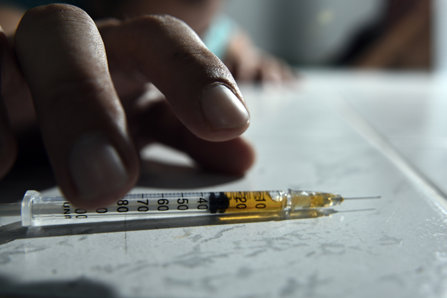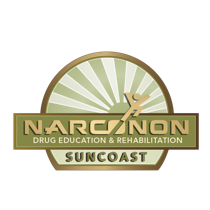How to Not Overdose on Fentanyl

Take everything you know or think you know about fentanyl and throw it out the window. Over the last couple of years urban legends and myths have surrounded the drug and all that has done is put a bunch of false data and wrong information into the hands of the public. Since fentanyl showed up on the scene, doing heroin has become a far more treacherous and dangerous activity to partake in. Fentanyl is a synthetic opioid that has some analogues that are 100 times more potent than heroin, which almost makes overdose imminent in its users. Recently, and when I say recently I mean within the last year or two, there has been news stories about a police officer brushing fentanyl off his uniform and suffering from an overdose and even medical professionals and first responders getting fatally ill after treating a person who had fentanyl on them. So, that being said, is it possible to overdose on the drug from just merely getting it on your skin or inhaling a tiny amount of it?
The answer is no, it’s impossible.
There are researchers who work with the drug on a daily basis who somehow survive to tell the tale. Christopher Moraff, a journalist and independent researcher, works with samples of street heroin in order to test for the presence of fentanyl and doesn’t even wear protective equipment. He even tested his own urine after getting it on his hands and curiously enough, he never tested positive for fentanyl. Around 80% of the samples he tested were positive for the drug, which is quite scary for the regular user, but it seems like most of the “heroin” these days is actually fentanyl. A lot of doctors, toxicologists, and other medical professionals work directly with fentanyl and have yet to have any problems and some actually believe the public panic about the drug causing an overdose by casual physical contact or being around a person who has used it is fairly unwarranted.
According to Harvard Medical School professor Jeremy Faust, “It’s just not a substance that is easily absorbed through the skin.” Drug companies have worked long and hard and spent a lot of money to figure out transdermal systems to deliver fentanyl through the skin, so if it were absorbed so easily, transdermal mechanisms to deliver the drug wouldn’t be necessary. Furthermore, wouldn’t the dealers selling this stuff have major problems if it could so easily get into your system and kill you? They deal with the drug is mass quantities and even some work in manufacturing setups where the drug is created, and I don’t think there have been reports of mass deaths or overdose there either. Finally, inhaling small amounts of it is unlikely to kill you either. The Russian government, after years of experimentation, figured out a way to create an aerosol version of fentanyl, which they used against Chechen terrorists. But again, there was lots of time, money, and science that went into that, so thinking that inhaling small particulates of fentanyl will cause you to overdose is illogical, at best.
We need to stop panicking. Fentanyl will likely kill you if you shoot it up or deliberately snort a line of it but mere physical contact with the drug will probably cause you few problems. The reason I say that is that I don’t want someone to choose not to help someone who is overdosing because they fear they might overdose themselves from the fentanyl the person has used because it might be on their clothes or whatever. People are dying every day from the drug and if you see someone that needs help, you should help them. Don’t let mass hysteria and bad information prevent you from saving a life. And then again, you could always encourage them to seek treatment after their immediate needs are met.
Sources Used:
https://tonic.vice.com/en_us/article/8xk4jk/touching-fentanyl-absorbed-through-skin
